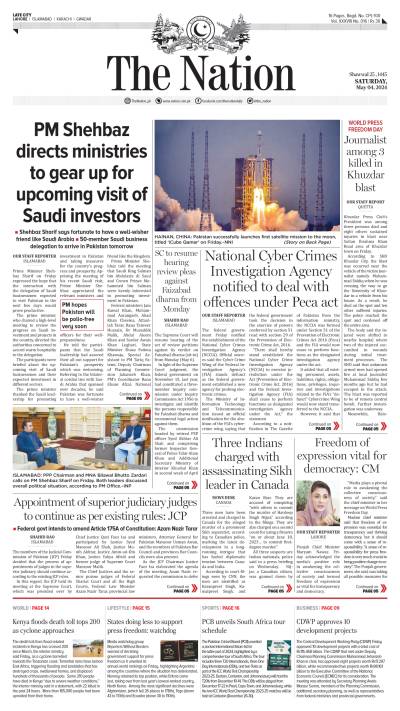ISLAMABAD
Pakistan may not be able to import gas from Tehran as the country’s fragile gas pipeline network cannot take the load of the 750 mmcfd Iranian gas and has capacity of transporting only 325 mmcfd gas, unless it adds additional capacity to its gas transmission line.
If Pakistan is serious about the gas import from Iran it was required to upgrade the capacity of South to North gas pipeline and must add an additional 1000 mmcfd capacity to its existing supply line, Central leader of All Pakistan CNG Association (APCNGA), Ghayas Paracha told The Nation. Everyone talks about the import of the Iranian gas but no one knows about the condition of our gas pipelines, they don’t have space to carry additional quantity of gas, he added.
Due to flawed planning of the gas utility companies the CNG sector in Punjab is compelled to buy expensive RLNG gas as these companies have failed utilise the full capacity of the LNG terminal due to pipeline constrains which in turn effecting the gas supply and prices, he maintained. If you process more LNG in the terminal it cost less, if you process less its cost more, he added.
First they have constructed a LNG terminal with the capacity of 660 mmcfd and then they discovered that their system cannot transport more than 325 mmcfd gas, Paracha said adding “I don’t know why there is so much adhocism in the policies of these companies”. It is pertinent to mention here that the government is planning to install three gas power plants, 1200MW each, in Punjab, to be operated on the imported LNG.
Meanwhile a statement issued by APCNGA central leader Ghayas Paracha said that Pakistan may not be able to import gas from Tehran despite a nuclear deal between Iran and US which has renewed hopes for improved economic ties between the neighbouring countries. Iran has completed its part of the pipeline to transport 750 mmcfd gas to Pakistan while Islamabad has started implementation of 880 km of pipeline but it hasn’t considered up gradation of gas distribution network, said the statement.
The existing old-fashioned gas infrastructure cannot sustain the pressure of Iranian gas therefore it must be improved immediately otherwise all efforts to tame energy crisis through Iran gas will go down the drain, the statement warned.
The LNG terminal can handle 660 mmcfd gas but the pipelines cannot transport over 325 mmcfd which is another example of mismanagement and incompetence of gas companies for which country and masses are made to pay the price. Ghiyas Paracha said that Pakistan initiated efforts to import LNG a decade back but gas utilities didn’t upgraded capacity of pipelines which has resulted in under utilisation of LNG.
He said that LNG and Iranian gas is costly than the locally produced natural gas therefore gas companies should be asked to reduced gas losses, currently standing at 14 percent, to internationally accepted standard of 1.5 to 2 percent. He asked the government to take stern action against officials foiling efforts to reduce transmission/ distribution losses.






